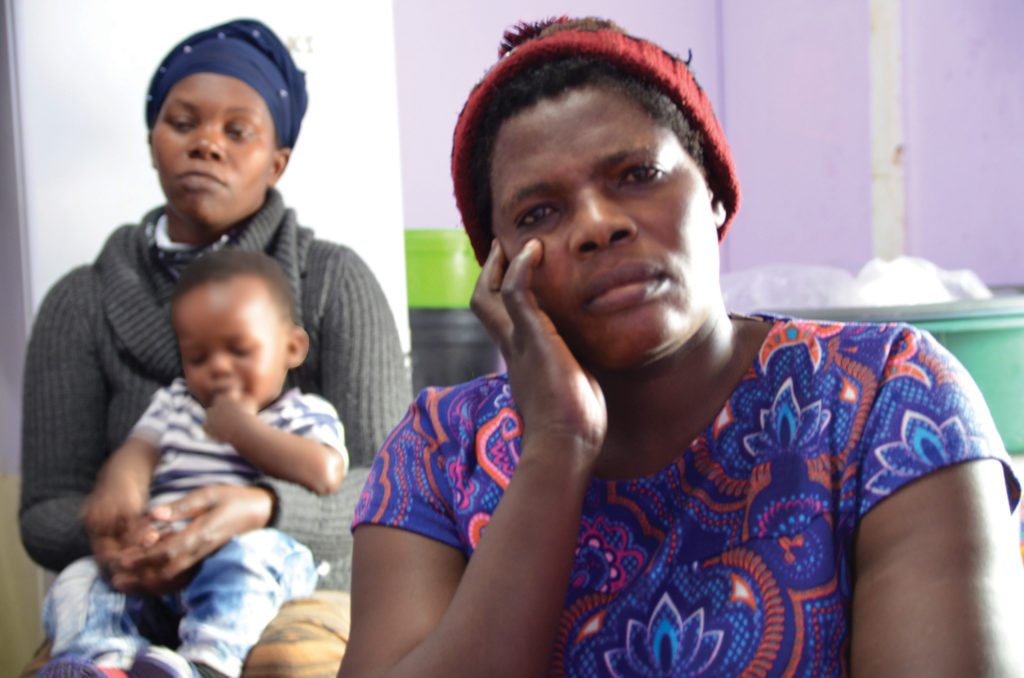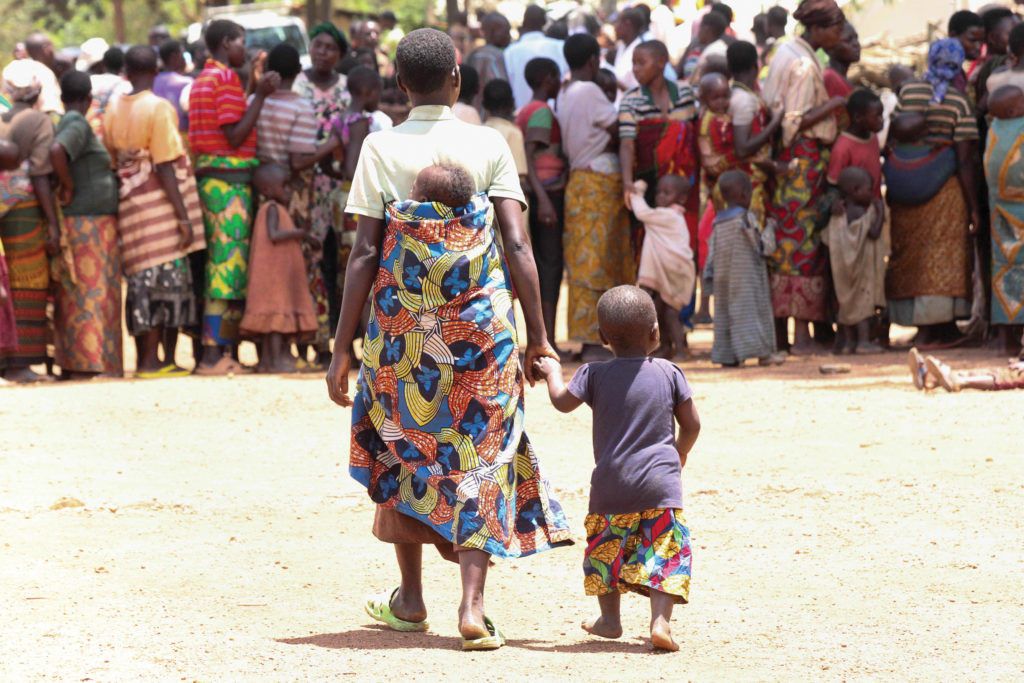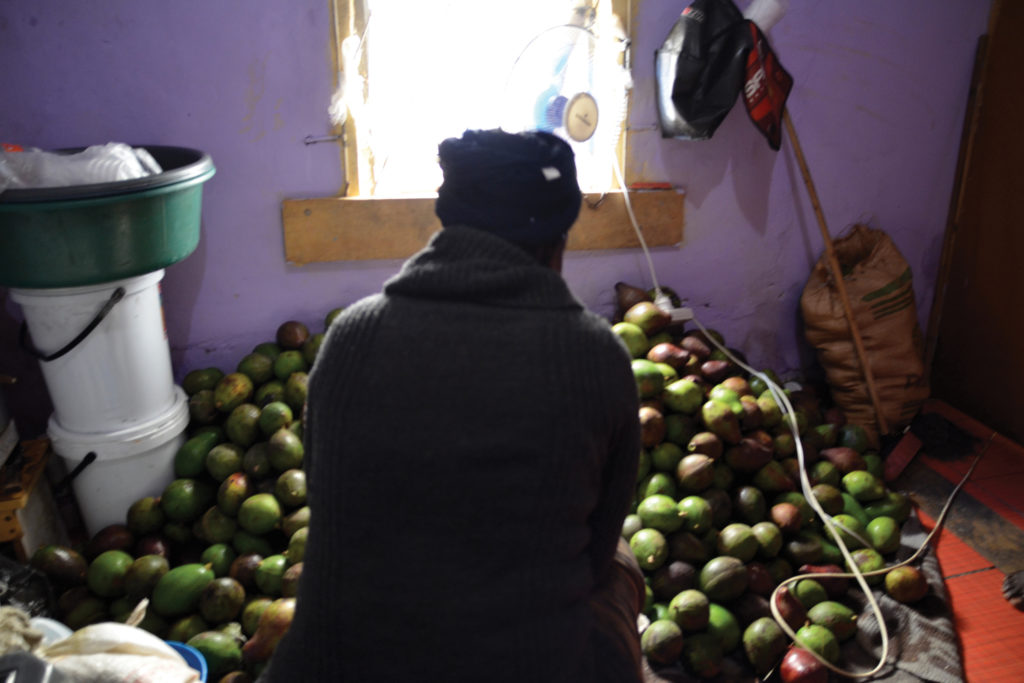CHALLENGES • STORIES OF RESILIENCE

Chasing the Dream of a Secure Life
They had to flee their own country after receiving death threats, but their struggle to survive continues in South Africa amid xenophobic attacks and legal constraints. Two Burundians tell of their ordeals
BY RAFAEL ARMADA MCC | REPORTING FROM DURBAN
THE SOUTHERN African Development Community comprises 16 countries, has a population of 363.2 million people and hosts 6.4 million immigrants. Of these, an estimated 2.9 million reside in South Africa. This country also hosts 266 700 refugees and asylum seekers mainly from countries such as Somalia, Democratic Republic of the Congo, Ethiopia and Zimbabwe, according to the United Nations (UN), at mid-year 2020. The majority of them fled from violence in their countries of origin only to find innumerable hardships in South Africa, aggravated by the situation of Covid and unemployment.
“Today I cannot sell avocados; the Metro Police are moving around the market.” The heap of avocados in Grace Niyonkuru’s (not her real name) single room is piling up. “Now they want me to remove these avocados from here, but I have no other place to store them”. She pays R2 000 for a small dwelling where a double bed and a little cooker hardly fit, in the neighbourhood of Greyville, a low-income area in the city of Durban. She buys the sack of avocados for R300 and she sells them by unit, but the margin of profit is small and there is a high risk of losing money if the fruit becomes over-ripe.
Unrest in Burundi
In 2015 the late Burundian President Pierre Nkurunziza announced his intention of seeking a third term in power. His declaration provoked an uprising and unrest all over the country. The opposition was outraged and violence broke out especially in the capital, Bujumbura. One of the senior military generals of the country, Adolphe Nshimirimana, also presidential adviser for internal security of Nkurunziza, averted a coup d’état against his President in May 2015. Three months later, he was assassinated by members of the opposition. His security guards—one of them Grace’s husband—were also executed. “They told me that they would kill me too, so I had no option but to leave my country”. Someone paid smugglers to take her in trucks from Bujumbura, south through Tanzania and Mozambique to South Africa, but not without cruel and repeated violence and hardships of different kinds throughout the journey. When she arrived in Durban, in June 2016, she slept for some time in the streets till she was helped to get accommodation. Fleeing Burundi, she left her four children behind. “They were studying in a boarding school and they couldn’t accompany me”; however, two of them managed to follow her later to South Africa. Another two, aged 20 and 17, are in Rwanda.

Survival
Since her arrival, Grace tried to make ends meet by selling vegetables in the market and relying on the food parcels received from the Parish of St Peter’s when they were available. In 2018 she was beaten up while selling in the market. “Many locals do not want foreigners competing in their business”. Since then, and as a consequence of that violence, she suffers from severe injuries in her ear, but the local hospital refuses to help her.
She stays next to two of her children, aged 23 and 19. “The younger one has got documents, but he has not found a job yet”. The police have also harassed her in the street. She refers to an incident that happened last year, in August, when she was asked to show her permit of residence; and as she was not carrying it, the police arrested her and detained her for three days.
Grace applied for UN refugee asylum in 2016. It gives her a temporary permit to stay in the country, but does not allow her to work and this makes survival very difficult. She still waits, five years later, for a refugee status that could provide for her and her family’s upkeep. Till then, she tries to sell avocados when the Metro Police give her a break and her physical condition allows it. Her friend Dorothy Manirakiza (not her real name) is 28, twenty years younger than her.
Fleeing
Dorothy left Burundi a year later than Grace. Her brother was killed by police officers and imbonerakure—the armed youth wing of the ruling party. They came to her family house falsely accusing them of hiding arms in their residence. They beat and brutally assaulted her several times till she was able to escape from the place. They threatened to kill her too. After the aggression, she had to wait for some months in the country till her first child was born; then she and her baby boy managed to flee Burundi.
It took her one month to reach South Africa. She remembers crossing forests in Tanzania and Mozambique, walking from three in the morning till three in the afternoon. When she arrived in Durban, in May 2017, she stayed in the streets for some time. Visiting the Department of Home Affairs, she surprisingly met Margareth, her blood sister, who introduced her to Grace. They became close friends. Dorothy started selling vegetables as well, till she was chased away from the market because she did not have a license to sell. Since then, she has not been able to work.

a decent living selling avocados. Photo: Carla Fibla.
Dreams
Her sister Margareth was granted refugee status a few years later and now she is living in Sweden though, due to a disability, she sits in a wheelchair. Dorothy gave birth to her second child in South Africa, now one year old, but her partner is also disabled and has casual employment for R2500 a month. They pay R2000 for their room´s rent, leaving very little left to survive with. “My dream is to get training in a manual job, so that I may start earning my own income”.
St Peter’s parish has supported her with the school fees for her first-born child and food parcels. Both Burundian friends feel quite alone in their struggles which are hard to bear. On 14 June, when the two friends were together in the market, trying to sell, the Metro Police came; they took their avocados and fined Grace R600. “We cannot do anything; they do not allow us to survive” says Dorothy, feeling the pain of her friend. Both pray earnestly that God may open a way for them, a better life in this beautiful and bountiful land, a country where honey and milk flow.
